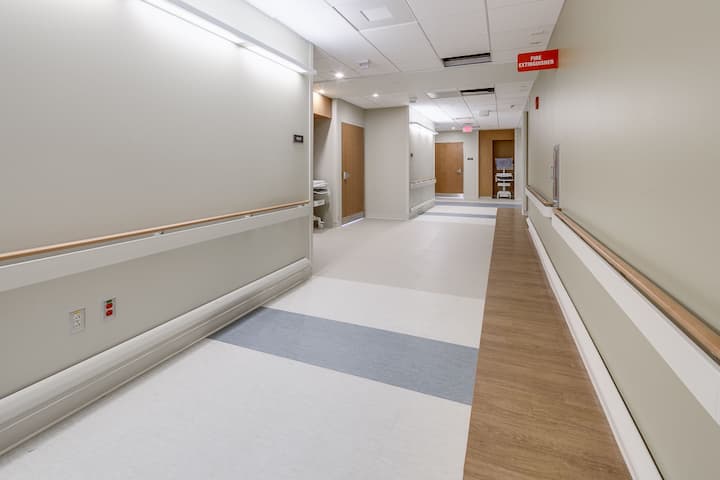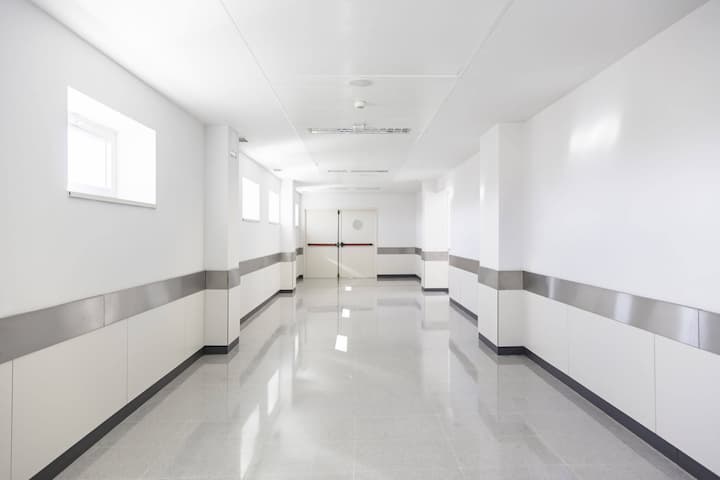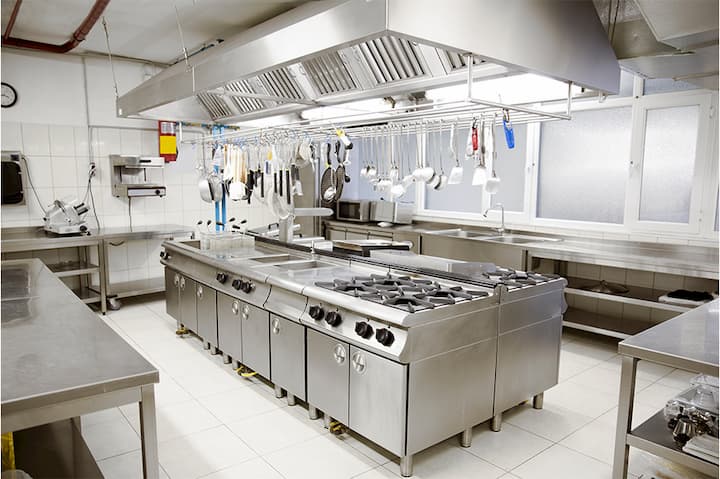Constant spills, high temperatures and high traffic are some of the main things a commercial kitchen flooring goes through on a daily basis. No matter how big or small it is, a commercial kitchen should have all the needed things to make it functional, comfortable and safe to work in for everyone. That being said, you should look for a hospitality flooring that is slip-resistant so it could improve traction and reduce falls. It should also be easy to clean, comfortable to stand on for hours, and aesthetically appealing.
The Most Popular Commercial Kitchen Floors
Vinyl Flooring
A list like this cannot start without mentioning commercial vinyl flooring. Also known as resilient flooring, vinyl flooring is made of synthetic and natural polymers which are combined to make it as durable as possible. Nowadays, there is a large assortment of vinyl hospitality flooring that doesn’t compromise on performance and durability. What makes this floor so special and popular are its antibacterial, waterproof and water-resistant properties. When compared to wood or any other natural flooring solution, vinyl floors are the most affordable option that also happens to be environmentally-friendly since it’s recyclable.

VCT (Vinyl Composition Tile)
Vinyl composition tiles are made of limestone, a thermoplastic binder, colour pigments and filler. This vinyl flooring option is made in sheets which are then cut into tiles. Although it has layers of polish to protect its surface, this alternative is the least preferred for commercial kitchens. This is because it needs to be regularly stripped, waxed and re-coated.
LVT (Luxury Vinyl Tile) and Sheet Flooring
When compared to VCT, LVT and sheet floorings are a much stronger commercial flooring option. Mainly made of limestone base material and composites, this floor has a digital graphic film layer applied on its base layer and a sealed outerwear layer on top. Precisely this property makes LVT and sheet floors durable and resistant to heat, water and stains while still being stylish and appealing.
The digital graphic film layer can be printed literally into any design, giving you the opportunity to choose any pattern you like. Another great advantage of this flooring option is that it can be pre-treated for infection control and it can minimise the number of seams on the floor. Additionally, vinyl floors are slip-resistant, easy to clean and maintain while still giving the needed comfort for kitchen staff.

Ceramic Tiles
Ceramic tiles are made of a clay mixture formed into tiles which after that is fired in an oven. This flooring type can come in porcelain and non-porcelain composites, where both of them are durable, easy to clean and maintain. When used for commercial kitchens, ceramic tiles are usually treated with a melted glass glaze to protect them from wear, tear, water, stains and other damages. Otherwise, the ceramic will be porous and unable to endure the needs of a commercial kitchen.
Just like the digital print on the sheet and LVT flooring, the glaze on ceramic tiles can be done in any design including wood grains or stone patterns. This can certainly give you the freedom to choose the one that meets your kitchen’s design style. Plus, one of the biggest pers of ceramic tiles is that they can be easily replaced. In case one of them breaks, you can replace them one by one without having to shut down the whole kitchen.

Natural Stone Tiles & Brick
Although great for commercial kitchen use, the main downside of these two types of floors is their price. However, both of these flooring solutions are durable and appealing, great in creating a warm and inviting ambience. Natural stone tiles are made from materials obtained from the earth which explains why each stone has its own unique characteristic. When choosing the ideal one for your commercial kitchen, make sure to stay away from polished surface tiles because they can be quite slippery when wet. That being said, it’s best to stick to granite, slate, honed and brushed materials as they give good traction. Since all of these tiles are natural and porous, sealing them with a protective coat from time to time might be needed.
Just like natural stones, bricks are also porous and susceptible to water damage, which explains why they also need to be sealed at least twice a year. That way they could better resist stains and some other hazards. Bricks can also be waxed, but if doing this, you should know that wax needs to be stripped and reapplied periodically to prevent any buildup.